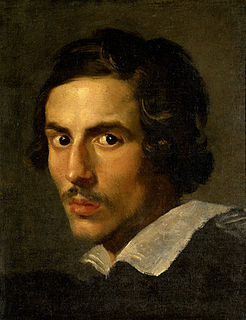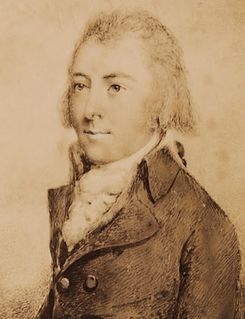A Quote by Aiden Wilson Tozer
To square the records, however, it should be said that if the Calvinist does not rise as high, he usually stays up longer. He places more emphasis on the Holy Scriptures which never change, while his opposite number (as the newspapers say) tends to judge his spiritual condition by the state of his feelings, which change constantly. This may be the reason that so many Calvinistic churches remain orthodox for centuries, at least in doctrine, while many churches of the Arminian persuasion often go liberal in one generation.
Quote Topics
Centuries
Change
Churches
Condition
Constantly
Doctrine
Does
Emphasis
Feelings
Generation
Go
High
His
Holy
Holy Scriptures
However
Judge
Least
Liberal
Longer
Many
May
More
Never
Never Change
Newspapers
Number
Often
Opposite
Orthodox
Persuasion
Places
Reason
Records
Remain
Rise
Said
Say
Scriptures
Should
Spiritual
Square
State
Stays
Tends
Up
Which
While
Related Quotes
What James Madison and the other men of his generation had in mind when they wrote the First Amendment was that there should be no official relationship of any character between government and any church or many churches, and no levying of taxes for the support of any church, or many churches, or all churches, or any institution conducted by any of them.
It requires twenty years for a man to rise from the vegetable state in which he is within his mother's womb, and from the pure animal state which is the lot of his early childhood, to the state when the maturity of reason begins to appear. It has required thirty centuries to learn a little about his structure. It would need eternity to learn something about his soul. It takes an instant to kill him.
Martin Luther King challenged the conscience of my generation, and his words and his legacy continue to move generations to action today at home and around the world. His love and faith is alive in millions of Americans who volunteer each day in soup kitchens or in schools, or who refused to ignore the suffering of millions they'd never met in far-away places when a tsunami brought unthinkable destruction. His vision and his passion is alive in churches and on campuses when millions stand up against the injustice of discrimination anywhere, or the indifference that leaves too many behind.
There are two devices which can help the sculptor to judge his work: one is not to see it for a while. The other... is to look at his work through spectacles which will change its color and magnify or diminish it, so as to disguise it somehow to his eye, and make it look as though it were the work of another.
A child who passes through many hands in turn, can never be well brought up. At every change he makes a secret comparison, which continually tends to lessen his respect for those who control him, and with it their authority over him. If once he thinks there are grown-up people with no more sense than children the authority of age is destroyed and his education is ruined.
The material which a scientist actually has at his disposal, his laws, his experimental results, his mathematical techniques, his epistemological prejudices, his attitude towards the absurd consequences of the theories which he accepts, is indeterminate in many ways, ambiguous, and never fully separated from the historical background . This material is always contaminated by principles which he does not know and which, if known, would be extremely hard to test.
So many sins against the poor cry out to high heaven! One of the most deadly sins is to deprive the laborer of his hire. There is another: to instill in him paltry desires so compulsive that he is willing to sell his liberty and his honor to satisfy them. We are all guilty of concupiscence, but newspapers, radios, television, and battalions of advertising men (woe to that generation!) deliberately stimulate our desires, the satisfaction of which so often means the degradation of the family.
By the consultation of books, whether of dead or living authors, many temptations to petulance and opposition, which occur in oral conferences, are avoided. An author cannot obtrude his service unasked, nor can be often suspected of any malignant intention to insult his readers with his knowledge or his wit. Yet so prevalent is the habit of comparing ourselves with others, while they remain within the reach of our passions, that books are seldom read with complete impartiality, but by those from whom the writer is placed at such a distance that his life or death is indifferent.
Every once in a while I check and I say, do I still believe in God? And the answer is absolutely yes. And then I think, I suppose I should go to church now. But after going to so many churches in my life and trying to go with the flow with so many denominations, Eastern and Western, I don't really feel I need to go to church at all.
Gossip is always a personal confession either of malice or imbecility, and the young should not only shun it, but by the most thorough culture relieve themselves from all temptation to indulge in it. It is a low, frivolous, and too often a dirty business. There are country neighborhoods in which it rages like a pest. Churches are split in pieces by it. Neighbors are made enemies by it for life. In many persons it degenerates into a chronic disease, which is practically incurable. Let the young cure it while they may.
I think with great affection and deep gratitude of my venerable predecessor, Benedict XVI, who during these years of his pontificate has enriched and strengthened the Church with his teaching, his goodness, his guidance, his faith, his humility, and his gentleness, which will remain a spiritual heritage for all.
I said earlier that I do not believe an artist's life throws much light upon his works. I do believe, however, that, more often than most people realize, his works may throw light upon his life. An artist with certain imaginative ideas in his head may then involve himself in relationships which are congenial to them.
Clearly the hardest thing for the working artist is to create his own conception and follow it, unafraid of the strictures it imposes, however rigid these may be... I see it as the clearest evidence of genius when an artist follows his conception, his idea, his principle, so unswervingly that he has this truth of his constantly in his control, never letting go of it even for the sake of his own enjoyment of his work.
We have seen that though Cristna was said to have left many sons, he left his immense empire, which extended from the sources of the Indus to Cape Comorin, (for we find a Regio Pandionis near this point,) to his daughter Pandæa; but, from finding the icon of Buddha so constantly shaded with the nine Cobras, &c., I am induced to think that this Pandeism was a doctrine, which had been received both by Buddhists and Brahmins.
While the poet entertains he continues to search for eternal truths, for the essence of being. In his own fashion he tries to solve the riddle of time and change, to find an answer to suffering, to reveal love in the very abyss of cruelty and injustice. Strange as these words may sound I often play with the idea that when all the social theories collapse and wars and revolutions leave humanity in utter gloom, the poet--whom Plato banned from his Republic--may rise up to save us all.
Two places are ordained for man to dwell in after this life. While he is here, he may choose, by God's mercy, which he will; but once he is gone from here, he may not do so. For whichever he first goes to, whether he like it well or ill, there he must dwell forevermore. He shall never after change his dwelling, though he hates it ever so badly.





































